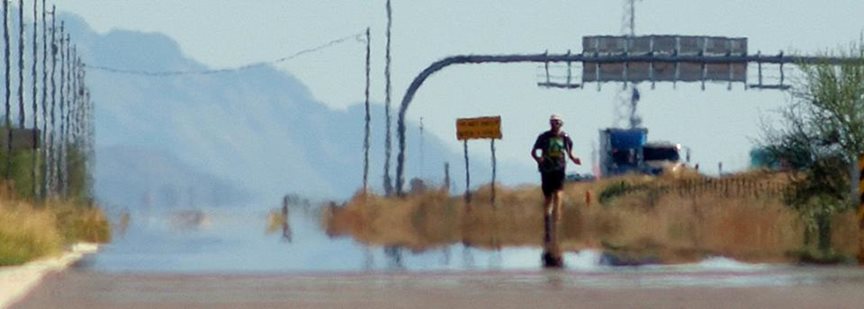Last updated: 05-Nov-18
By Luis Manuel Teira Otero
I am a Galician (in the north-west of Spain) lawyer, who is 29 years old, and has been working in London since last March. I registered for Ultra Trail du Mont Blanc 2016 in January. Interesting mix, training for the hardest European ultra mountain running event in a city as flat as London. “It is about purpose first and then strategy”. I read this resounding sentence recently, on a paper about business strategy, leadership and all those fanciful topics, and it inspired me to define the basics of ultra running: purpose, preparation and patience. The three ‘pees’.
Purpose: all your passion, tempered with common sense. First of all, endurance running involves a huge effort, and when you reach your goals the reward is priceless. You will need to invest a lot of resources (time and money!) and you have to think it through. Depending on your availability, you should focus on different races, distances, etc.
Commitment is difficult to maintain, so it is better to build your own narrative to be able to maintain the motivation needed to push your limits during the months, with not much room for excuses or improvisation. “I feel better when I am in top shape”, “I like how I feel when my body is fit”, “I am going to visit amazing places for racing!”, “I am meeting interesting people with similar views of life… but incredibly different lifestyles!”, etc. Think about your life goals, and match them with your exercise. It is the only way to create a long-lasting relationship with running.
Endurance running allows a good deal of creativity. You will achieve something unique, as each runner career and performance is different, and so is his race calendar. You can, with a reasonable effort, take part in professional events like in no other sport!
Preparation: physical and mental readiness. Your main work tool will be your entire body, think about it as a vehicle, and therefore do not hesitate to put all your efforts into providing it with the best possible equipment, and fuel it carefully. Equipment is not only the poshest GPS watch in the market, or the latest fashion in trainers. You should go through a comprehensive health screening, to avoid any unpleasant surprises, and based on its results you will be able to build – may be with the help of a coach – more realistic training plans. If you want to build a plan yourself, take advice from well-known websites (like Runultra) and spend some cash on good books (do not hesitate to ask for advice, I am a better reader than runner!).
Apart from designing a good session calendar, remember the importance of building a strong core… Endurance demands your entire body to be in an ultra-worthy state! Fuelling is also training, and vice versa.
Regarding nutrition – I have the same advice as for training plans. Ask for the advice of a professional, read a lot, ask more expert friends… But, overall, do not try radical changes. You have to find your personal formula… And it always takes time! You will develop your own personal recipe by trial and error, after months (years) of trying different things and realizing how they work for your body when racing or training. It takes time, but you will notice how your performance improves when you eat healthier food. From my experience, speed is about sugar and protein, endurance is about fat and carbs.
You need to think which kind of runner you want to be, and evolve smoothly into it. I’m not an expert, and nutrition is a very touchy field, so seek proper advice on something so crucial for your life.
Last but not least, mentality. This is similar to purpose, but slightly different. This is not about having ambition and clear objectives. It is about setting progressive goals, and preparing your mind to overcome difficult moments. You will face the worst thoughts at critical moments, like that week you needed to put more mileage and you felt lazy. At mile 40, when you still have 20 miles to end the race and you start to think this is stupid, you should be sleeping at home instead of running into the woods at 1 AM. You need to be strict when your head wants to leave, or just to let up. Everything can be trained, even determination. If you are tough that day your friends wanted to go for a beer but you had to go home and do your training session, you will be unbeatable on race day.
Patience: erect the plan step by step. Running is a huge architectural work you need to build progressively, implementing some adjustments when required. Plans are to be constantly improved, applying critical thinking and naturally learning from mistakes (without feeling ashamed). It is also a 24/7 job. You need to rethink your entire lifestyle, and as you start to do slight adjustments you will also increase your confidence. Reaching goals is based on confidence.
When I say 24-hours a day, of course I include sleeping. This is one of the most important parts of our daily routines, and for a runner it is important as following your training schedule. Good sleep is the best recovery supplement, and you will be less prone to get injured!
Dare to be creative! Is the only thing in which I can give expert advice on. For all the other things, look up good websites, magazines and books. Fortunately, there are a few, and following others’ advice you will avoid a lot of novice mistakes! Create your own way of running, and fit it into your lifestyle, it will boost your performance in all fields.




